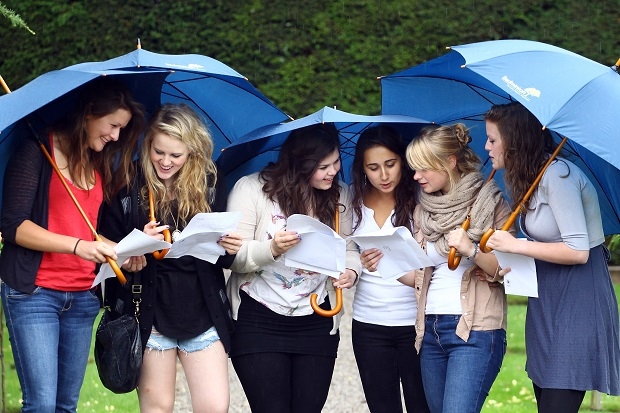It’s A level results day, the final hurdle for teenagers hoping to fly the coop and go to university next month. But new research suggests that parents with children approaching university years could find their youngsters living at home for years to come.
Figures obtained by Aviva reveal that the number of students living with parents while at university rose from 247,965 to 327,390 between academic years 2004/5 and 2014/15, now accounting for around one in five students in higher education.
The total number of UK students taking full time and sandwich courses has risen from 1,391,180 to 1,697,150 over the same period.
Earlier this year Aviva reported that there could be 2.2 million people living in multi-family households and 3.8 million 21-34-year-olds living with their parents by 2025. This was based on the rate of growth seen in the past 10 years and assuming house prices continue to rise.
The report also found that one in 10 multi-generational households are made up from adult children who have moved back in with their parents after university.
Exchange rates
Holidaymakers are finding that £1 buys less than a euro at some airports’ bureaux de change, as the slump in sterling drives up holiday costs, according to The Guardian. In the week that sterling slipped to a new three-year low against the euro following the Brexit vote, researchers found that bureaux de change at Stansted and Luton airports were offering just 99 cents for every pound exchanged. Last month, £1 was buying €1 at some airport currency exchange bureaux, but these rates have now worsened, according to currency specialist Caxton FX, which surveyed the walk-up rates at several airports this week.Brexit
Co-op Bank has said economic uncertainty following the UK’s Brexit vote may hamper growth. Market conditions are ‘challenging’ for retail banks, it said.
The bank reported a narrowing of half-yearly losses to £177 million but said ‘legacy issues’ would continue to hit its financial performance until it has finished a rescue plan. The bank almost collapsed in 2013, after bad property loans contributed to a £1.5 billion hole in its finances. ‘Today’s market conditions are challenging for all retail-focused banks and the macroeconomic uncertainty following the result of the EU referendum, including the likelihood of lower-for-longer interest rates, may restrict our ability to grow revenue in the short term,’ said chief executive Niall Booker. Meanwhile, The Times reports that confidence among British households over their finances has bounced back after slumping following the Brexit vote. Markit, the financial data firm, said its household finance index for August reversed July’s steep fall and reached 44.9, its highest reading in four months. There was also a recovery in households’ perception of how their finances will do over the next 12 months, with the reading rising to 49.8 in August, up from July’s two-and-a-half-year low of 47.1. This suggests households anticipate a broadly stable financial outlook over the year ahead. And the ONS said this morning that retail sales volumes surged 1.4 per cent in July compared with June as UK shoppers shrugged off the shock Brexit vote.New cars
New research has suggested that almost one in four Britons in need of a new car are put off buying one because of the hassle surrounding the haggling process. Furthermore, the majority of those who have had to negotiate the price of a car before claim they ‘extremely disliked’ the process.
According to the new study, 61 per cent of those Britons who’ve bought a new car in the last 12 months haggled over the price. What’s more, men are twice as likely to negotiate the price of their new car as women.
www.carwow.co.uk polled 2,341 people aged 18 and over from around the UK, around half of whom had bought a brand new car within the last 12 months and the other half were in need of a new car.
In other motor news, car insurance premiums rose by an average of 14 per cent during the second quarter of 2016, compared to the same period a year ago, according to new analysis from MoneySuperMarket.
The comparison site analysed more than three million customer quotes between April and June 2016 to identify overall and regional price fluctuations. The average premium paid in Q2 2016 was £512, up 14 per cent from £448 in Q2 2015 – a £64 hike. The analysis painted an even worse picture for drivers in their thirties, with the average policy rising by 22 per cent year-on-year, from £436 to £530.
Energy
With the end of the summer holidays and back to school season approaching, many families across the UK are already feeling the pinch. However, some families are in for another financial blow at the end of the month when a slew of fixed deals come to an end. Those on affected tariffs can expect to see average prices rises of £135.17 (14.5 per cent) a year. Gocompare.com Energy found that of the nine tariffs due to expire on 31 August, eight will result in an increase to customers’ bills. This is because households on expiring deals will be automatically rolled onto their supplier’s standard variable tariff, which is more expensive than their current deal.





Comments